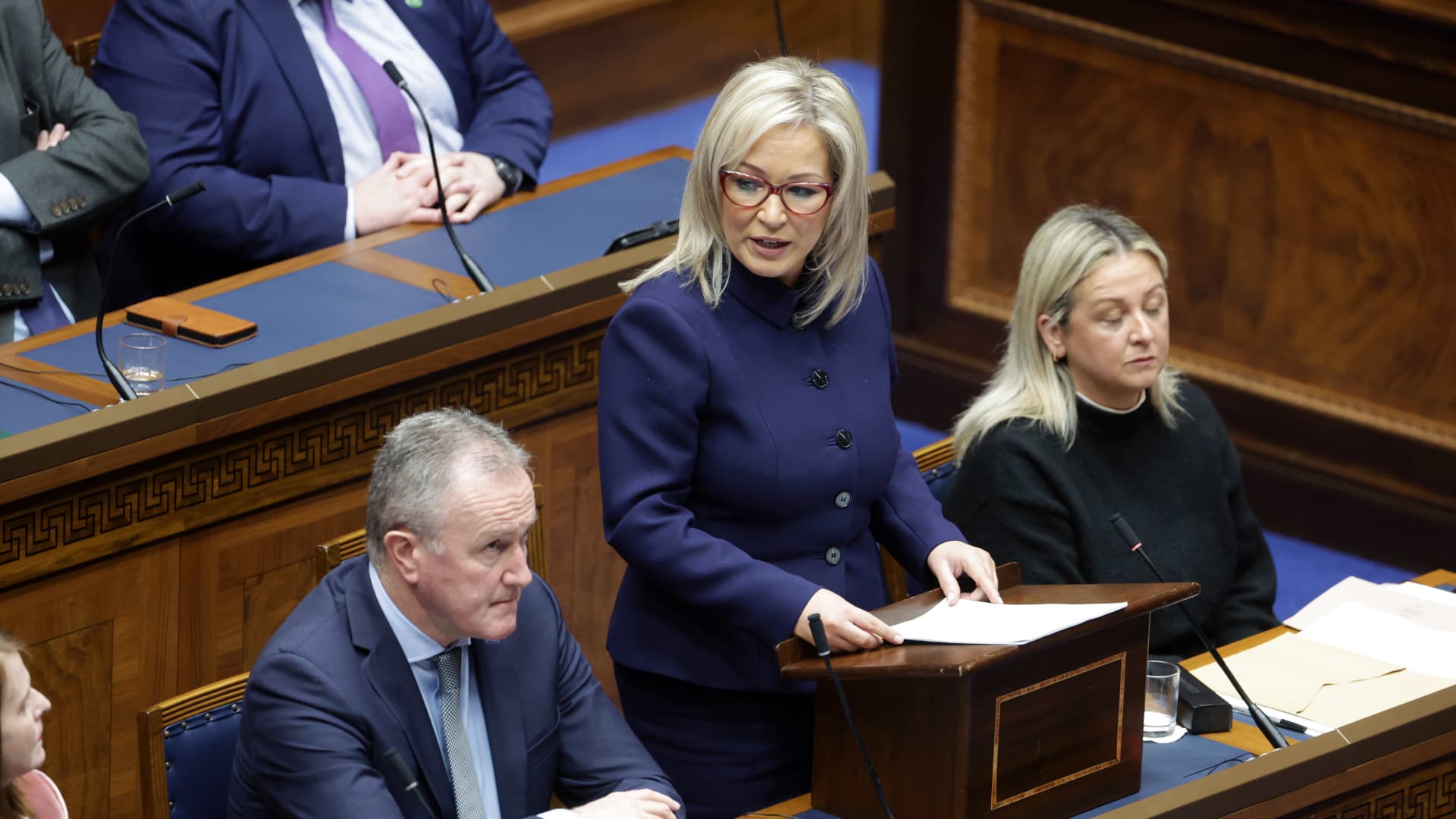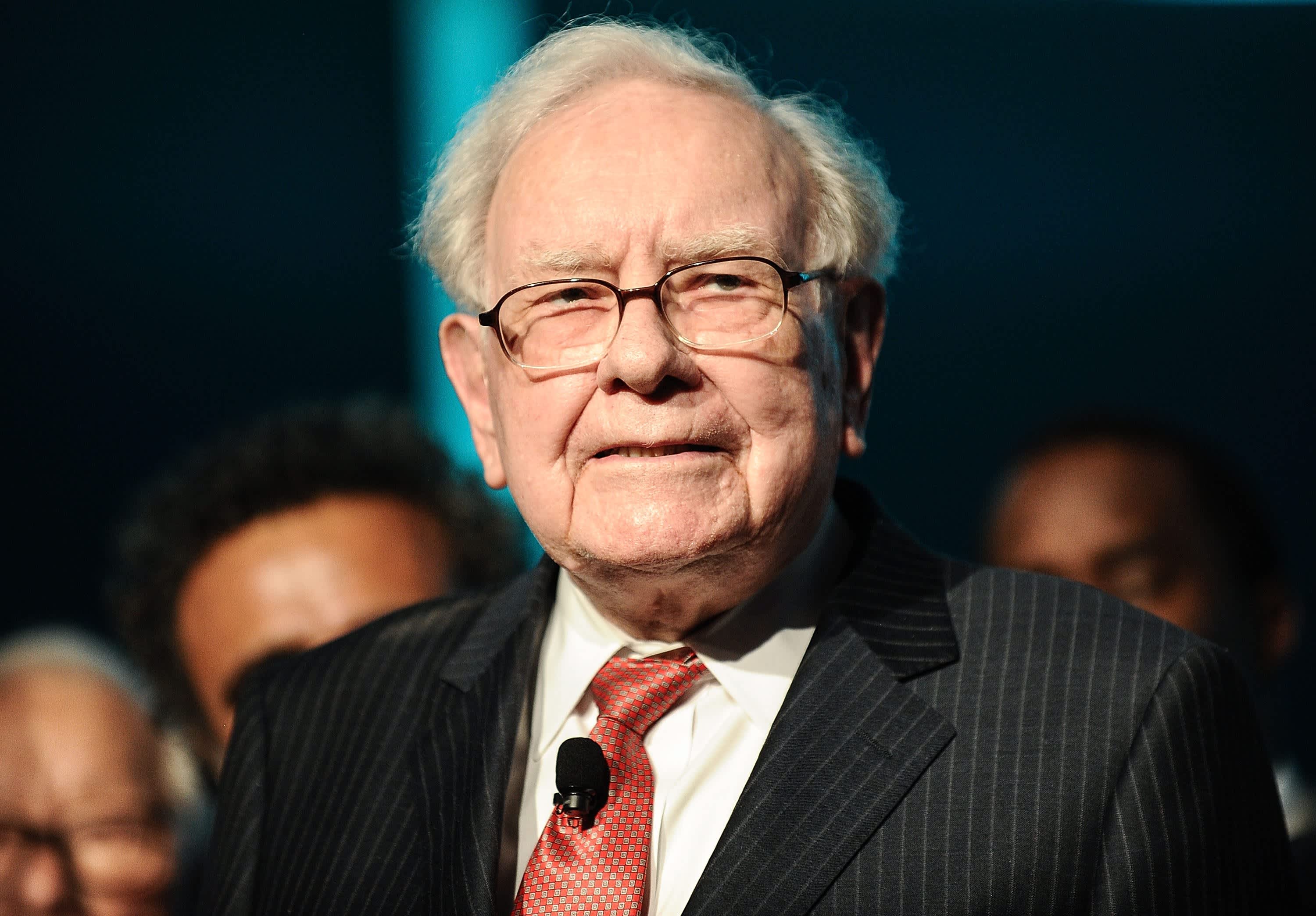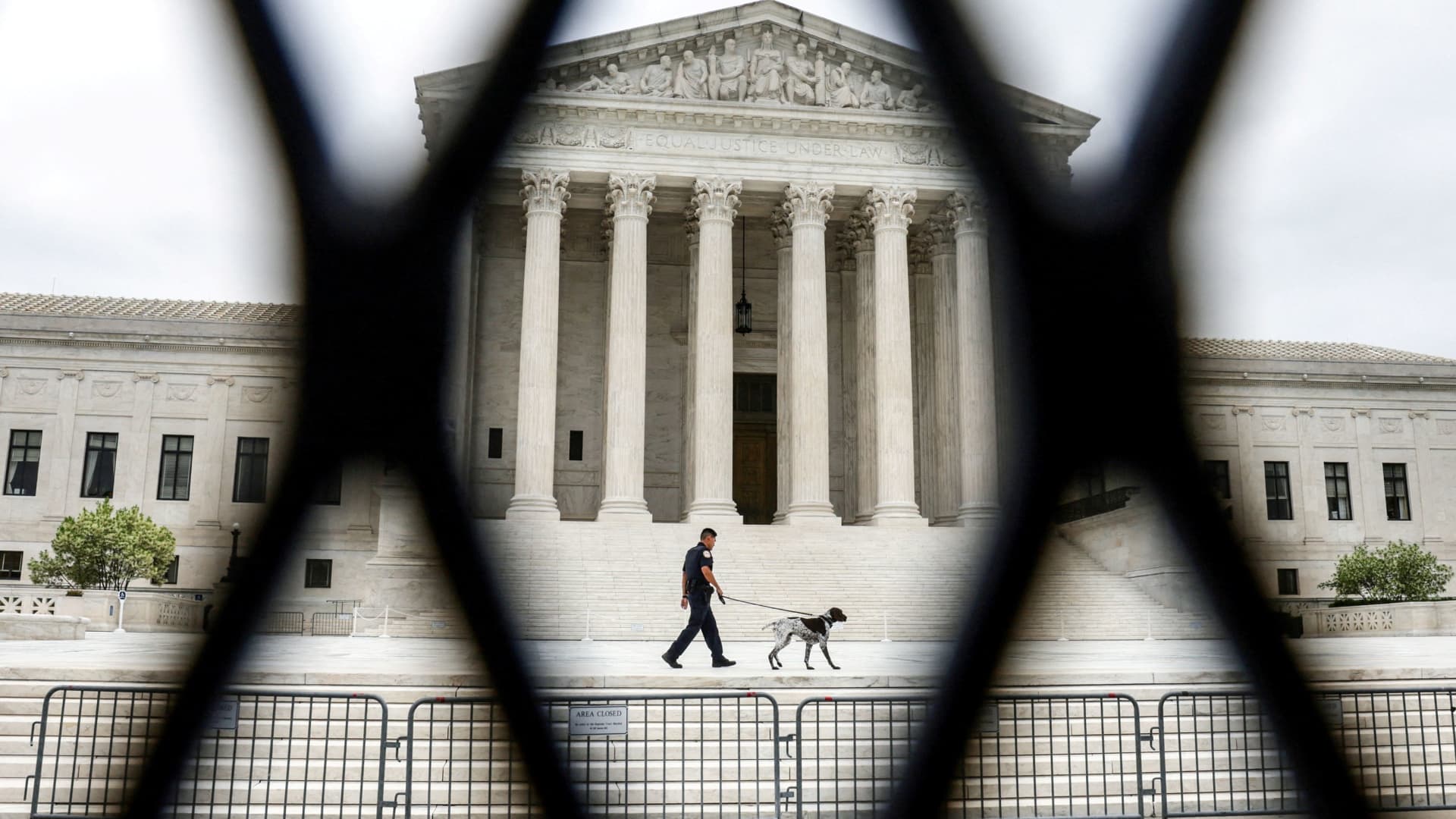The prospect of a united Ireland emerges as a republican leader takes office in Belfast
A referendum on Irish reunification could be on the cards within a decade, according to Northern Ireland's first ever nationalist first minister.

BELFAST, NORTHERN IRELAND - FEBRUARY 3: First Minister Michelle O'Neill speaks during proceedings of the Northern Ireland Assembly at Stormont on February 3, 2024 in Belfast, Northern Ireland.
Handout | Getty Images News | Getty Images
LONDON — A referendum on Irish reunification could be in the cards within a decade, according to Northern Ireland's first-ever nationalist first minister, who took office at the weekend.
Sinn Fein's Michelle O'Neill was appointed as first minister on Saturday, the first Irish nationalist to hold the office since Northern Ireland was founded as a Protestant-majority state in 1921. The Democratic Unionist Party's Emma Little-Pengelly was appointed deputy first minister.
It came after the Northern Ireland Assembly, the country's devolved parliament, reconvened for the first time in two years on Saturday after the U.K. loyalist DUP reached a deal with the British government to end a boycott over post-Brexit trade arrangements.
The island to the west of England is divided in two; Northern Ireland is part of the U.K., whereas its neighbor, the Republic of Ireland, is an independent nation and a member of the European Union.
Until now, Northern Ireland's first minister has always come from a British unionist party, but Sinn Fein, which advocates for Northern Ireland to rejoin the Republic, won the most seats in the Assembly for the first time in 2022.
The DUP, Northern Ireland's largest British unionist party, boycotted the Assembly in February 2022 in protest over post-Brexit trade rules and refused to return for two years, leaving the country of 1.9 million people without a functioning administration. The deal that secured their return includes a contribution of more than £3 billion ($3.8 billion) from the British government for Northern Ireland's public services.
The power-sharing rules of the Assembly, enshrined in the Good Friday Agreement — a landmark 1998 peace deal that brought an end to three decades of sectarian violence in Northern Ireland — mean that the executive, which runs the country, must include both unionist and nationalist representatives.
BELFAST, Northern Ireland - April 10, 2018: Former Irish Taoiseach Bertie Ahern, former British Prime Minister Tony Blair and former US President Bill Clinton at an event to mark the 20th anniversary of the Good Friday Agreement.
Brian Lawless/PA Images via Getty Images
The elevation of a nationalist to the top seat at Stormont has sparked the question of whether Irish unity is on the horizon. The U.K. government said it sees "no realistic prospect of a border poll" following the appointment of the new first minister, and suggested that any referendum on reunification would be decades away.
However, in an interview with Sky News over the weekend, O'Neill said she "absolutely contests" that assessment, and that this is a "decade of opportunity."
"There are so many things that are changing. All the old norms, the nature of this state, the fact that a nationalist republican was never supposed to be first minister. That all speaks to the change," she added.
Sinn Fein's political aspirations have long been clouded by its historic ties to the IRA, and O'Neill's personal history embodies this complicated relationship between her party and the movement's militant past. Her father was interned as a Provisional IRA prisoner and later became a Sinn Fein councillor, and her cousin was one of three IRA members shot dead in an ambush by the U.K.'s Special Air Service (SAS) in 1991.
A Police vehicle is attacked with petrol bombs during an illegal Dissident march in the Creggan area on April 10, 2023 in Londonderry, Northern Ireland.
Charles McQuillan | Getty Images
Yet O'Neill has emphasized the importance of her role as a "unifier" for a country seeking to preserve the fragile and precious peace fostered during the 25 years since the Good Friday Agreement.
Promising to be a "first minister for all," she poignantly broke with republican tradition by referring to the country as "Northern Ireland" in her acceptance speech, rather than "the north of Ireland" or "the six counties."
O'Neill told Sky News that the country had endured a "difficult past, a turbulent past," and that it was now most important to "look towards the future."
"I obviously am a republican, a proud republican, but I think it's really, really important that I can look towards those people who identify as Irish republicans, but also those of a British identity and unionist identity and tell them that I respect their values, I respect their culture," she said.
British Prime Minister Rishi Sunak on Monday played down suggestions that a referendum could be held within the decade, having spent the last few days in meetings with O'Neill and other members of the new Northern Irish executive.
A man walks past a hijacked bus burning on The Shankill Road as protests continue in Belfast, Northern Ireland, April 7, 2021.
Jason Cairnduff | Reuters
"Our new deal gives them more powers and more funding than they've ever had so that they can deliver for families and businesses across Northern Ireland, and that's what everyone's priority is now," he told Sky News.
"It's not constitutional change, it's delivering on the day-to-day things that matter to people."
However, O'Neill has made clear her firm belief that power-sharing in Stormont can serve the people of Northern Ireland, while Sinn Fein also pursues its ultimate goal of reuniting the island of Ireland.

 JaneWalter
JaneWalter 






























